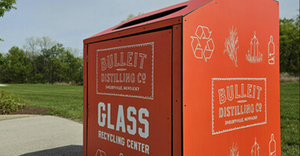A Renewed Push for Larger Trucks?
Allowing trucks to haul more would reduce traffic congestion and air pollution, according to new report. But negative public opinion remains a roadblock.

A new report indicates that “mega trucks” are being viewed once again as a way to reduce road congestion and exhaust emissions, while also lowering “cost per ton” calculations for fleets.
Yet “significant obstacles” remain, according to the Global Mega Trucks Market Forecast to 2025 report compiled by consulting firm Research and Markets – especially in terms of reducing the infrastructure impact of using larger and heavier trucks to haul freight, while overcoming legislative hurdles and negative public opinion.
The firm’s report noted that while Australia is the leading country currently in terms of widespread use of mega trucks – in terms of market penetration rate – North America is in second place and is expected to further extend its lead over Europe.
Indeed, growth of “mega truck” sales is expected to come mainly from North America over the next nine years, according to the study; nearly doubling sales volume by 2025 compared to 2016, with North America ending up as the market for nearly half of all global mega truck sales. This will largely be driven by favorable regulations, Research and Markets argued, in response to greater demand for “freight optimization.”
U.S. manufacturers are also pushing hard for changes to truck size and weight rules to gain such “optimization,” as noted in recommendations they sent to the Trump administration earlier this year.
For example, a joint filing from the American Forest and Paper Association (AFPA), the Beer Institute, and the Agriculture & Commodities Transportation Coalition urged the modernization of federal truck weight limits to “make this country a more attractive site” for manufacturing.
The AFPA pointed out that an weight limit increase to 91,000 lbs. with use of an additional trailer axle would cut as many as 1.4 million truck trips annually and reduce annual truck miles by as much as 250 million.
“This single reform has the potential to generate huge cost savings for U.S. businesses and improve the outlook for manufacturing jobs in the United States,” the groups wrote.
Yet the Research and Market’s study also noted that any “proliferation” of mega trucks, where on average two mega trucks would replace three normal-sized trucks, could have negative impact on commercial vehicle sales and thus OEM revenues.
The firm also noted that “serious questions are being raised” about the impact mega trucks might have on safety, roadway infrastructure, and the environment. Those issues continue to generate pushback to “mega trucks” on many fronts.
“Legislation increasing truck weights is both dangerous and unnecessary,” noted Jim Johnston, president of the Owner-Operator Independent Drivers Assn. (OOIDA), in a letter to Congress two years ago.
OOIDA in particular cited government data that indicates trucks over 80,000 pounds have nearly 20% more brake violations and higher overall violations—including out-of-service violations, compared to trucks at or below the current weight requirement..
As for the impact of heavier trucks on the nation’s roads and bridges, “the last thing our industry—and our country—needs is a larger payment when it comes to infrastructure funding,” Johnston wrote.
About the Author(s)
You May Also Like


